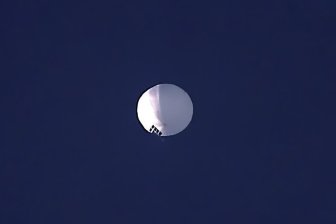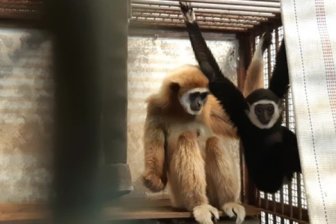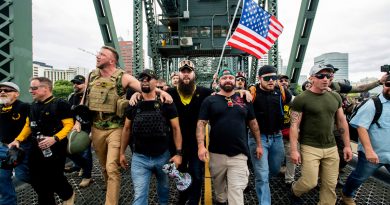Chinese spy balloon: U.S. military in search of remnants after shoot down – National
The U.S. military said on Sunday it is searching for remnants of the suspected Chinese surveillance balloon it shot down the previous day, in a dramatic spy saga that has further strained American-Chinese relations.
The U.S. Navy is working to recover the balloon and its payload and the Coast Guard is providing security for the operation, said General Glen VanHerck, commander of the North American Aerospace Defense Command and U.S. Northern Command.
Read more:
Canada supports U.S. decision to shoot down suspected Chinese spy balloon, Anand says
Read next:
‘Not the first time’ a Chinese surveillance balloon passed over U.S.: ambassador
A successful recovery could potentially give the United States insight into China’s spying capabilities, though U.S. officials have downplayed the balloon’s impact on national security.
A U.S. Air Force fighter jet on Saturday shot down the balloon off the coast of South Carolina, a week after it first entered U.S. airspace near Alaska. VanHerck said the incident took place over U.S. territorial waters.
China protested the response as an “obvious overreaction,” but analysts said that any counter-move by Beijing will likely be finely calibrated to keep from worsening ties.
Republican lawmakers on Sunday criticized President Joe Biden for waiting days to shoot down the balloon as it floated over the United States, accusing him of showing weakness toward China and initially trying to keep the breach of U.S. airspace undisclosed.
“I think part of it is the president’s reluctance to take any action that would be viewed as provocative or confrontational towards the Chinese communists,” said Republican Tom Cotton, a member of the Senate Armed Services Committee.
Former President Donald Trump and his former national intelligence director, John Ratcliffe, denied Defense Secretary Lloyd Austin’s assessment that similar balloons had transited the United States during his presidency.
“China had too much respect for ‘TRUMP’ for this to have happened, and it NEVER did,” Trump wrote on social media site Truth Social.

Ted Cruz says Chinese spy balloon should’ve been shot down earlier
But Republican Representative Michael Waltz backed up Austin, telling the Washington Post that the Pentagon had notified Congress that Chinese balloons were spotted near the United States several times during Trump’s tenure.
He said balloons had been spotted near Texas and twice near Florida, as well as previously known sightings near Hawaii and Guam.
Democrats said Biden’s decision to wait to shoot down the balloon until it had passed over the United States protected civilians from debris crashing to Earth.
“The president called for this to be dealt with in a way that balanced all of the different risks. That’s exactly what happened,” U.S. Transportation Secretary Pete Buttigieg said on CNN’s “State of the Union” program.
Read more:
Object with balloon ‘characteristics’ flew over Colombia, air force confirms
Read next:
Liberals ‘didn’t quite get it right’ on C-21 firearms amendment: minister
Senate Democratic Leader Chuck Schumer dismissed the Republican criticism as “premature and political.”
“The bottom line here is that shooting down the balloon over water wasn’t just the safest option, but it was the one that maximized our intel gain,” he said at a news conference.
The Pentagon will brief senators on the balloon and Chinese surveillance on Feb. 15, Schumer said.
Republican Mike Turner, chairman of the House of Representatives Intelligence Committee, said he believed China was using the balloon to figure out how to counter U.S. nuclear weapons and missile defense systems.
“The president has allowed this to go across our most sensitive sites and wasn’t even going to tell the American public,” Turner said on NBC’s “Meet the Press” program.

China is a ‘legitimate threat’ to U.S., Canada: ambassador
Republican Marco Rubio, vice chair of the Senate Intelligence Committee, told the ABC News program “This Week” that China was trying to send a message that it could enter U.S. airspace. Rubio said he doubted that the balloon’s debris would be of much intelligence value.
(Reporting by David Lawder, Kanishka Singh, Gram Slattery and Andy Sullivan in Washington and Ryan Woo in Beijing; Editing by Scott Malone, Will Dunham, Grant McCool and Diane Craft)




